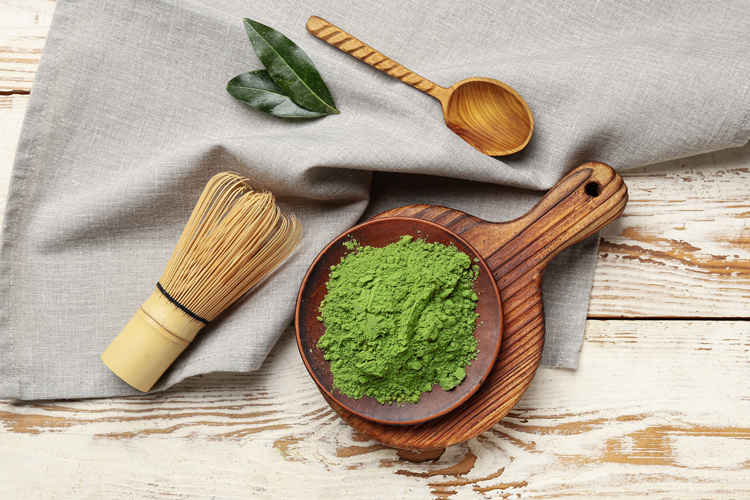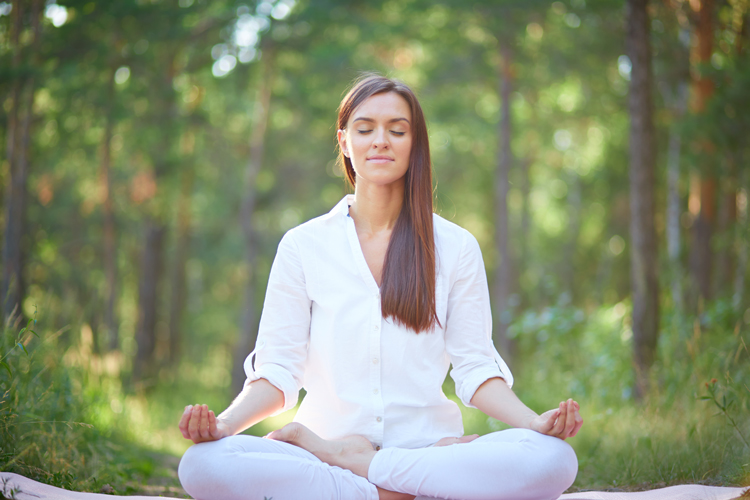What are you looking for?

Since there is a variety of green teas available. You might wonder why we are focusing on matcha and what it is exactly that is making it famous with every passing day.
Wondering what matcha green tea is? What are the matcha fitness benefits? Why are so many people replacing their morning cup of brown with a slightly different green-looking tea?
Over the past few years, matcha has been gaining recognition as a more healthy alternative to espresso. No doubt that many people crave the power that coffee gives them, but they also struggle with the jitters and the scary crash that they feel afterward. Or maybe they’ve built up a caffeine tolerance and do not feel the caffeine hit anymore. If this sounds like you, it is time to switch to a healthy yet tasty drink, which is matcha.
While matcha contains much less caffeine than coffee, its consequences are usually sustained over 3-4 hours, rather than a brief spike of energy. It doesn’t give you a jolt as caffeine does, and alternatively, it is released more slowly and step by step into the body. And who doesn’t need a consistent supply of strength that promotes a peaceful focus, while handing over dietary benefits?
If you’ve scrolled through some famous social media portals such as Instagram, studied any popular fitness articles, or watched any fitness and health YouTube videos recently, you’ve possibly seen some of the beautiful pictures of matcha tea everywhere. It’s a trending superfood now, not simply for drinking but additionally as a component in baked items, breakfasts, and a lot more. It is also said that matcha is the ultimate espresso alternative.
Matcha is not your ordinary drink. Matcha is currently receiving loads of attention because of its outstanding fitness advantages, versatility, and capacity to taste like espresso and greater. And not to forget, its green color and unique flavor additionally help it to stand out from any other drink, mainly in stunning photographs of matcha lattes, matcha ice cream, or smoothies.
With all this information, you will be curious to separate fact from fiction. Whether or not you have consumed matcha before or have started out your very own matcha fan membership, the query we all need to be replied to is: what is the distinction between matcha and coffee? And which one is better?
Coffee, with its warm, comforting, and bitterly-caffeinated taste, has been a conventional drink for decades. However, can it maintain its crown as king of morning drinks with matcha tea gaining recognition fast?
We suppose that coffee can’t beat the advantages of a matcha drink.
Let’s dive more and see why we are favoring matcha more than coffee.

Produced from the Camellia Sinensis plant, matcha is the purest version of green tea, which boasts an impressive nutrient profile. The sturdy green hue is accomplished by protecting the tea plant around 20-30 days before harvest, which allows for an increase in both chlorophyll manufacturing and amino acids.
As soon as the leaves are harvested, they’re ground into a fine powder that carries an extensive variety of vitamins from the entire leaf. Considered one of the best superfoods, matcha offers an authentic manner of ingesting green tea whilst offering a steady caffeine restoration and a bunch of benefits.

Coffee, on the other hand, is famous for its hot and sour taste, its easy texture, and its caffeine content. Lighter coffee roasts have a milder taste and are more caffeinated, whilst darker roasts are more potent and sour, but have much less caffeine. There are loads of approaches to drinking your espresso, as you’ll understand if you’ve ever seen a coffee shop menu. Some people like to drink brewed espresso, while others use espresso, a concentrated form of coffee. Integrate these with extra flavors, syrups, and seasonings, and also you’ll see why coffee has so many lovers – there appears to be a flavor to suit every flavor.
Matcha has a rich, green, and grassy flavor. As compared to regular green tea, the flavor is much more vibrant. This tea also have an astringent taste and a slight bitterness, even though it looks silky smooth with micro-foam on top.
Some brands also flavor their matcha to create a new taste. vanilla, blueberry, lemon, mint etc. There are endless flavor combos that are added to matcha to give it a delectable taste.
Matcha is not only famous for its beautiful appearance and taste but, it has many health benefits. Though coffee does have a proportion of useful minerals and nutrients, it does not contain the mixture of antioxidants, minerals, and amino acids that matcha has. These powerful vitamins help to prevent sickness, cancer, radicals, and different ailments. It has anti-aging benefits and can even repair your DNA.
Ultimately, whether or not making a decision to sip on matcha or coffee for a soothing day is completely your personal choice.
But once you get used to matcha, you should attain a cup of the green stuff. Matcha is right for those people who need some caffeine in the morning or afternoon but want to stay away from a caffeine crash. It’s also worth trying matcha if coffee simply hasn’t been doing it for you recently. Every cup of matcha provides several health benefits. If you are touchy about caffeine or discover espresso to be too acidic, matcha may be a gentler alternative that still offers some caffeine.
However, we have tried to list here the benefits that matcha provides. We still could not provide all of the benefits, as there are a lot of advantages of drinking matcha instead of coffee.
Here are some of the major health benefits that you get from a cup of Matcha:
Although caffeine in both matcha and coffee raises our energy profile. However, caffeine in coffee will motivate an adrenaline glucose spike, which causes uncomfortable activities such as jitter and anxiety, in particular for non-frequent drinkers. Whereas, caffeine in matcha is being released slowly to the body so that it will result in increased alertness and increased concentration. There is no spike in adrenaline or glucose levels, no jitteriness or apprehension.

Matcha includes L-Theanine, an amino acid while it is combined with caffeine, it allows sustainable and focused energy and promotes a feeling of relaxation. It is the reason why ordinary green tea is thought of as a calming beverage. It promotes the release of feel-good hormones like endorphin, serotonin, and dopamine, at the same time additionally enhancing your interest and reminiscence.
Matcha is a diuretic, meaning that it curbs your midday starvation. After the coffee buzz wears off, many humans find that they crave snacks throughout the day. It’s different with matcha because one cup of it ensures that your body is in a balanced state for the relaxation of the day. Many people drink matcha green tea mainly for its weight loss benefits. With matcha, there is no need to change your way of life; simply change your drink.
Coffee offers you a quick energy boost, causes crashes, increases your risk for cancer, and stains your teeth. Matcha, which affords a sustained energy boost that lasts all day, has the most cancer-preventing antioxidants, encourages weight loss, prevents you from afternoon snacking, and is versatile in recipes. If you want to start your mornings off in a high-quality way, change your cup of espresso for matcha. It’s just that easy.

If you’re trying to lose or maintain your body weight, matcha is one of the greatest additions to your regimen. We all know that green tea is widely recognized to enhance weight loss, a lot, so you’ll find it on the ingredient listing for lots of weight loss supplements.

It is an easy method, albeit no longer as simple as a preferred inexperienced tea.
Just add half of a teaspoon or 1 scoop of matcha powder to your cup, then start with a small splash of water, and use your whisk to mix the powder with it, until there are no lumps. Now pour in your warm water and whisk vigorously to contain the water and powder with air until correct foam forms.
And you are all ready to sip a healthy and delicious cup of tea.
With regards to selecting between matcha and coffee, matcha green tea offers a higher strength boost in terms of fine and intensity of caffeine outcomes.
Caffeine’s effects are short-lived, and you quickly become aware of their disadvantages. ones from matcha, however, are balanced by using the properties of catechins and L-theanine.
Matcha tea also has greater fitness advantages than coffee thanks to its higher concentration of antioxidants, which are connected to improved aging and ailment-preventing properties.
So, have we motivated you to switch from coffee to matcha? The calming alertness you’ll get from matcha can be a better way to start your day than the spike of caffeine furnished through coffee.
Even if you’re still partial to your afternoon latte, we’re hoping we’ve armed you with the inducement you want to start incorporating matcha as a healthy part of your food plan.

